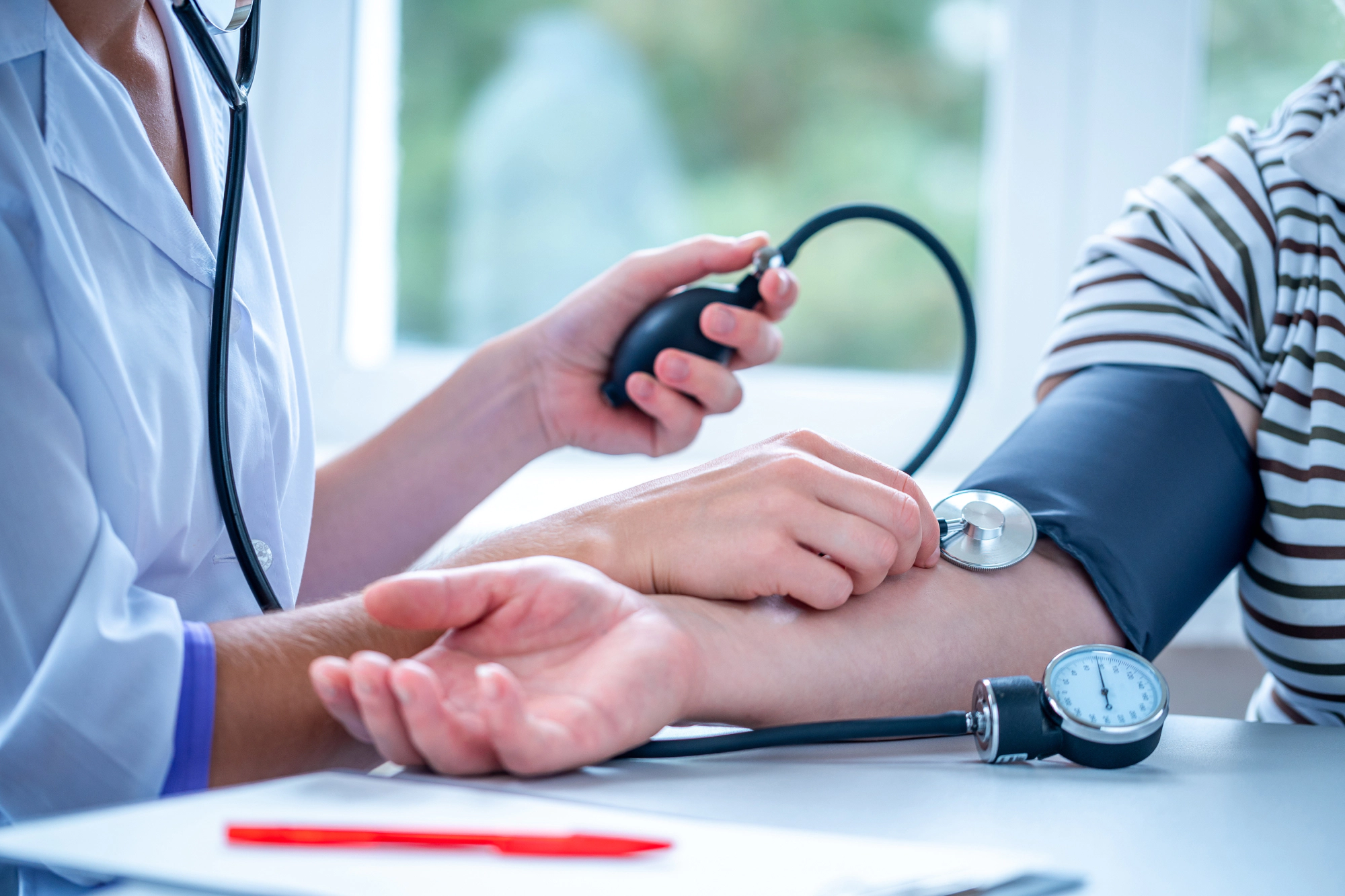How to Spot Hypertensive Emergency Symptoms
Blood Pressure
•
May 2, 2023

Hypertensive emergency symptoms can be both simple and somewhat complicated to spot if you’re unaware of what you’re looking for. Hypertension, more commonly referred to as high blood pressure, affects an estimated 1.28 billion adults worldwide. Because it is such a common condition, there may come a time when you or a loved one may come face to face with a hypertensive crisis.
The medical experts at Complete Care are here to explain the most common and notable hypertensive emergency symptoms and steps to take to seek medical help.
Hypertensive crisis vs emergency
Before we dive into what a hypertensive emergency is, we first need to go over the basics — the definition of a hypertensive crisis. So, what is a hypertensive crisis? A hypertensive crisis occurs when there is a rapid spike in blood pressure (BP) that goes over the usual and healthy BP.
The upper number (systolic blood pressure) and lower number (diastolic blood pressure) should be between 90/60 and 120/80 for it to be normal. If your blood pressure reaches above 130/80, your heart may not be able to pump blood properly, putting you at risk of having a stroke.
What constitutes a hypertensive emergency?
There are two types of hypertensive crises: hypertensive urgency and hypertensive emergency. Do note that both require medical attention to reduce any risk of stroke. However, a hypertensive emergency is a sign that the sudden spike in blood pressure has resulted in organ damage, making it a lot more dangerous than a hypertensive urgency where no organ failure has occurred. The most common organs to be affected by a hypertensive emergency are the brain, the kidneys, and the heart.
So, how can you tell if a hypertensive emergency is occurring or has occurred? Let’s look into the hypertensive emergency symptoms.
Hypertensive emergency symptoms
When is high blood pressure an emergency? The important thing to remember is that if your blood pressure levels are extremely high and you’re feeling the following symptoms, you are likely experiencing hypertensive emergency symptoms:
- Blood pressure is over 180/120 or greater
- Severe chest pain (Keep reading: When to go to the ER for chest pain)
- Back pain
- Blurred vision
- Severe headache
- Shortness of breath (Keep reading: When should I be concerned about shortness of breath?)
- Seizures (Keep reading: When is a seizure a medical emergency?)
- Altered consciousness
- Pronounced anxiety
- Heart failure
Chest pain and severe headaches accompanied by sky-high blood pressure levels of 180/120 or greater can signify damage to the heart or brain. These symptoms are a clear indication that you or the person affected need medical attention as soon as possible.
Experiencing a hypertensive emergency is rare and is typically a result of untreated hypertension. If you are living with high blood pressure, monitoring your BP levels closely and managing the symptoms properly can be the difference between life and death in some cases.
Hypertensive emergency treatment
It is crucial to note that if you believe you or a loved one is experiencing a hypertensive emergency, you should not attempt to manage your blood pressure with home remedies or self-treatments. In other words, get to your nearest emergency room as quickly as you can and let the medical professionals take care of you.
Once you arrive, your physician’s main priority will be to lower your blood pressure with either oral or intravenous (IV) medications. This could take anywhere from minutes to hours depending on how high the BP levels were. From there, a thorough examination will be done to determine which organs, if any, were damaged as a result of hypertension. Your hypertensive emergency treatment plan will depend on the severity of the organ damage that took place.
Complete Care can take care of hypertensive emergency symptoms fast
When it comes to a hypertensive emergency, there is no time to wait around. Hypertensive emergencies are considered life-threatening conditions due to the organs they can damage and the implications that can have on your overall health, function, and well-being. This makes understanding hypertensive emergency symptoms and finding quick medical assistance all the more important.
With low wait times and hospital-grade facilities, Complete Care is a 24/7 freestanding emergency room that can take care of patients dealing with all levels of hypertension.
Our locations are all over Texas (Austin, Corpus Christi, Dallas/Fort Worth, East Texas, Lubbock, and San Antonio) and in Colorado Springs. When in doubt, you know that you can turn to us for quality care.
More Helpful Articles by Complete Care: